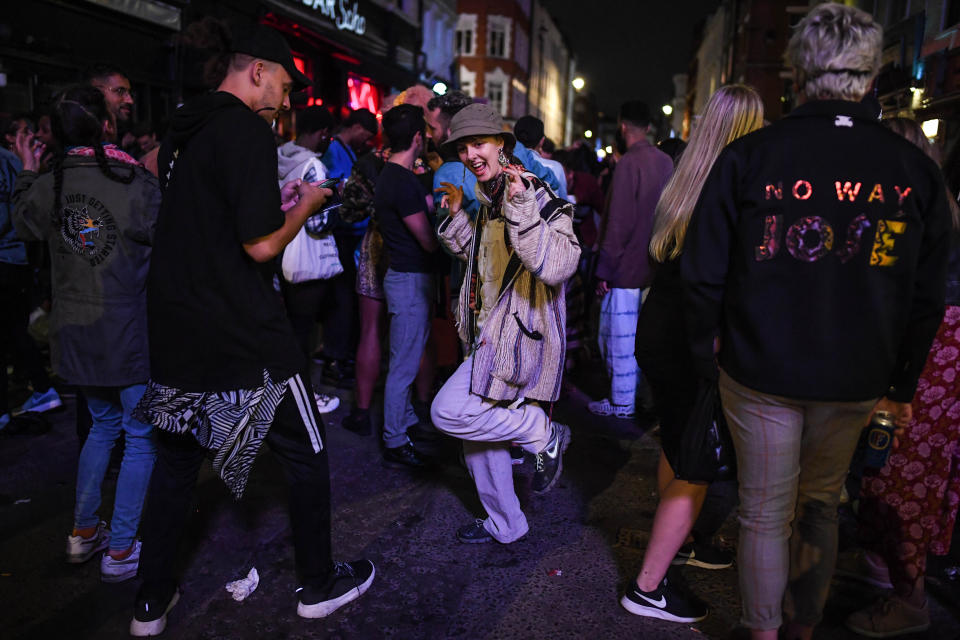Singing in a group of more than six indoors is now banned across England

Singing and dancing in a group of more than six people at an indoor venue have been banned across England as part of a raft of new restrictions to slow the spread of coronavirus.
“All reasonable measures” must now be taken by pub landlords and those who run hotel bars, restaurants and members’ clubs to ensure larger groups don’t break into song while enjoying themselves.
Pubs, bars, restaurants and cafes are also banned from playing music at more than 85 decibels, although live performances are exempt.
Wedding ceremonies and receptions are also exempt from both rules.
The new laws are coming into force as the government has been criticised by MPs for a lack of oversight or debate regarding restrictions.
Human rights lawyer Adam Wagner said also that the “confusing” way the government had introduced extra coronavirus laws for large parts of the North East of England was unacceptable.
The prime minister has been under pressure to give Parliament the opportunity to vote on future restrictions, with around 52 Conservatives signalling they could revolt ahead of Wednesday’s vote to renew the powers in the Coronavirus Act.
The rebels publicly backed an amendment to the legislation by Sir Graham Brady, the influential chair of the 1922 Committee of backbench Tories that would have forced the government to let MPs vote and debate any further potential changes to the rules.
However, the Commons Speaker said on Wednesday he would not select any amendments to the legislation, in order to avoid “uncertainty” and possible legal challenges.
Watch: New lockdown rules for the North East
The government was previously criticised when it banned “mingling” under its new “rule of six” law.
The rule stated people could not “mingle” with others outside their designated social gathering.
The law offered no definition of what “mingling” means in legal terms.
National Police Chiefs’ Council (NPCC) chairman Martin Hewitt has admitted there was no “foolproof system” to stop people flouting the rules and said stretched forces would not get into a “manhunt scenario” to find people who had broken laws.

“We have to be reliant that most people will be responsible, will accept that personal responsibility and will be sensible, but equally, there also has to be a response that is proportionate,” he said.
“It also has to be something that’s within the capacity of the service to deliver against when we have all the other demands that we have.”
Police expect the number of lockdown fines handed out to members of the public to rise, despite the fact that thousands of penalty notices already issued have gone unpaid.
Coronavirus: what happened today
Click here to sign up to the latest news, advice and information with our daily Catch-up newsletter

 Yahoo Sports
Yahoo Sports 
